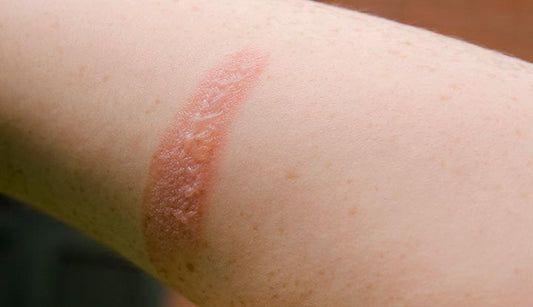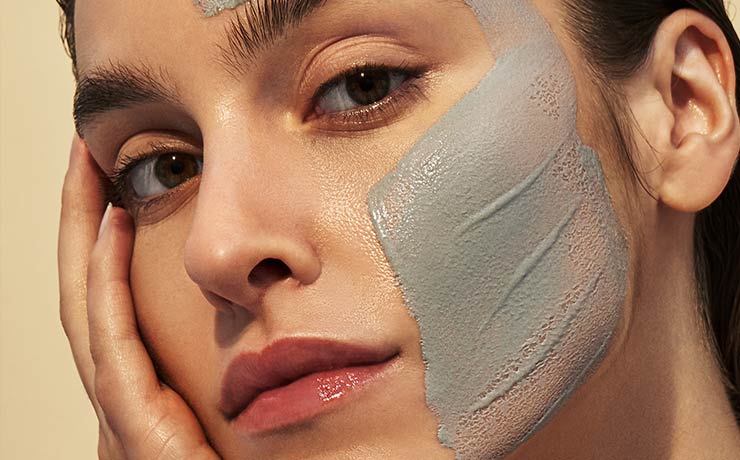Vitamin C for blemishes on the face
What is vitamin C?
Vitamin C, also known as ascorbic acid, is an essential nutrient for the human body. But did you know that it is also a vital element for skin care? Let's find out how.
Vitamin C Benefits
Vitamin C is a powerful antioxidant that can neutralize free radicals. Plus, it helps rejuvenate the skin from within, leading to a healthier, glowing appearance.
How does vitamin C help the skin?
Ascorbic acid plays a fundamental role in the production of collagen, a protein that helps keep skin firm and elastic. But that is not all. It can also help lighten blemishes on the face.
How does vitamin C work on the skin?
Vitamin C is known for its brightening properties. It can help lighten dark spots on the skin, giving it a more even tone.
The effects of vitamin C on facial blemishes
Vitamin C can inhibit the enzyme tyrosinase, which is responsible for the production of melanin. By doing this, it helps prevent new blemishes from forming and lighten existing ones.
The stain fading process
Vitamin C gradually works to fade blemishes on the face. Visible results can usually take several weeks to appear, so it's important to be patient.
Sources of vitamin C for the skin
Vitamin C can come from various sources, both internal and external.
Vitamin C through food
Incorporating vitamin C-rich foods into your diet is an effective way to improve your skin's health from within.
Vitamin C supplements
In addition to diet, vitamin C supplements can be a useful option for those looking to increase their intake of this essential nutrient.
Vitamin C in skin care products
Today, many skin care products contain vitamin C due to its many benefits. However, not all products are the same.
How to select the right product
To select the right vitamin C product for you, it's important to understand your skin needs and read labels carefully.
How to correctly use these products?
Most vitamin C products should be applied to clean, dry skin, followed by a moisturizer and sunscreen.
Possible Side Effects and Precautions
Although vitamin C is generally safe, some people may experience adverse reactions.
Who should be careful?
People with sensitive skin or allergies may need to test a small area of skin before using a vitamin C product on the entire face.
General care when using vitamin C on the skin
In addition to testing the product, it is important to follow the instructions for use and protect the skin from the sun.
Conclusion
Vitamin C can be a powerful ally for facial blemishes. However, it is important to remember that results do not happen overnight and that it is essential to be consistent in your use.
Frequent questions
Can vitamin C remove all blemishes from the face?
Vitamin C can help reduce the appearance of some blemishes on the face thanks to its brightening properties. However, the effectiveness may vary from person to person and depending on the type of stain. It is important to remember that vitamin C is a supplement to skin care and is not a substitute for medical treatment.
How long does vitamin C take to lighten blemishes on the face?
The time it takes for vitamin C to lighten facial blemishes can vary. However, in general, results can begin to be seen after several weeks of regular and consistent use. Remember that each skin is unique and the results may vary.
Can I use vitamin C on my skin every day?
Yes, you can use vitamin C on your skin every day. In fact, for best results, daily use is recommended. However, if you notice any type of irritation or adverse reaction, you should stop using it and consult a dermatologist.
How can I know if a vitamin C product is of good quality?
Determining the quality of a vitamin C product can depend on several factors. First, check the concentration of vitamin C; a good product will have a concentration between 10% and 20%. Also, the packaging should be dark and tightly sealed to protect the vitamin C from light and air, which can break it down. Lastly, look for products with a short ingredient list and no added fragrances.
Can I use vitamin C on my skin if I have acne?
Vitamin C may be beneficial for people with acne, as it can help lighten dark spots left behind by breakouts. However, if you have active acne, you may want to look for a formula that is non-comedogenic to prevent pore clogging. As always, it's best to consult a dermatologist before starting a new skin care regimen.

























































































































